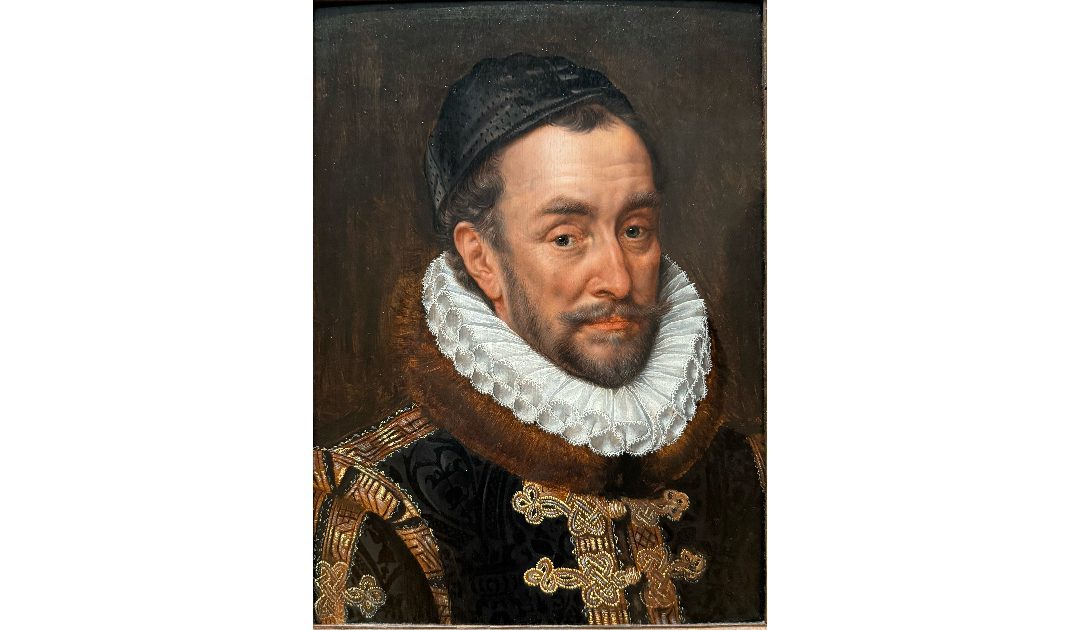On the 10th of July, 1584, William I of Orange was assassinated by Balthasar Gérard in Delft. William is a character in The Spy who Sank the Armada, the first book in the Sir Anthony Standen Adventures.
William I of Orange, also known as William the Silent, was a pivotal figure in the history of the Netherlands and a key leader in the Dutch struggle for independence from Spanish rule during the 16th century. Born on the 24th of April, 1533, in Dillenburg, Germany, William hailed from the House of Nassau, a prominent noble family. His upbringing combined the influences of German nobility and the courtly culture of the Habsburgs, as he was educated under the auspices of Emperor Charles V after inheriting the title Prince of Orange at a young age.
Initially, William was a loyal servant of the Spanish crown, holding significant military and political positions under King Philip II of Spain. However, his views began to diverge from Spanish policies, particularly regarding religious intolerance and autocratic governance. The imposition of Catholic orthodoxy and suppression of Protestantism in the Low Countries conflicted with William’s belief in religious freedom and local autonomy.
His transformation from a royal confidant to a revolutionary leader marked a significant turning point in Dutch history. By the mid-1560s, William had emerged as a central figure in organising resistance against Spanish rule. The outbreak of the Eighty Years’ War in 1568 underscored his leadership as he rallied support from various provinces and foreign allies. His advocacy for religious tolerance and opposition to absolute monarchy resonated with many in the Netherlands, uniting diverse factions against a common adversary.
William’s leadership was characterised by diplomatic acumen and strategic military campaigns. Despite facing numerous setbacks, including personal financial ruin and military defeats, he remained steadfast in his commitment to the cause of Dutch independence. His resilience and dedication earned him the moniker “Father of the Fatherland” among the Dutch.
One of William’s most notable contributions was the Union of Utrecht in 1579, a pivotal alliance that laid the groundwork for the eventual establishment of the independent Dutch Republic. His efforts to foster unity among the provinces were crucial in sustaining the resistance against Spain, even as internal divisions and external pressures threatened to undermine the movement.
Tragically, William’s life was cut short when he was assassinated on the 10th of July, 1584, in Delft by Balthasar Gérard, a fervent Catholic loyal to the Spanish crown. His assassination marked the first recorded instance of a head of state being killed with a handgun, illustrating the profound impact of emerging technologies on political violence.

